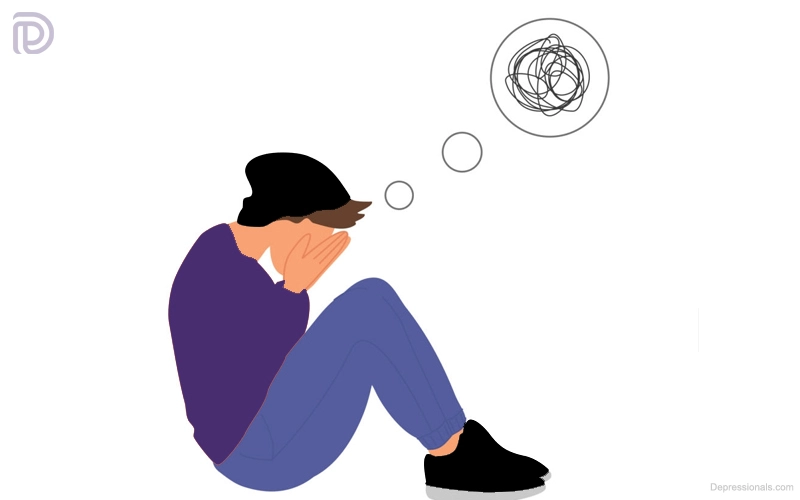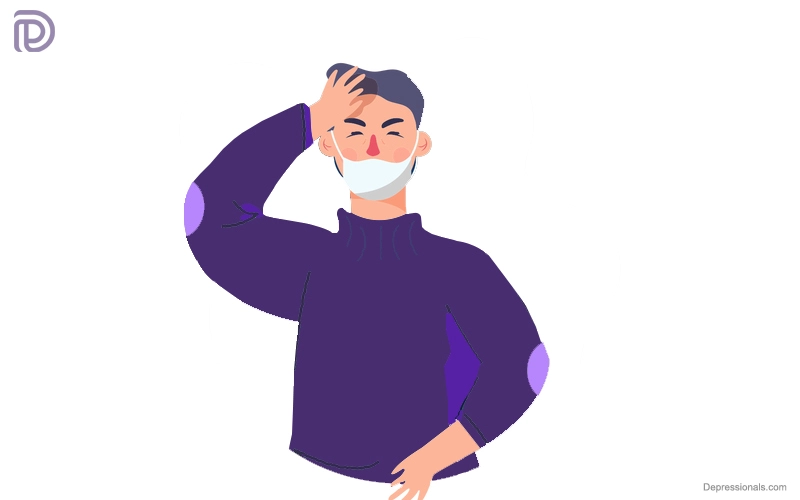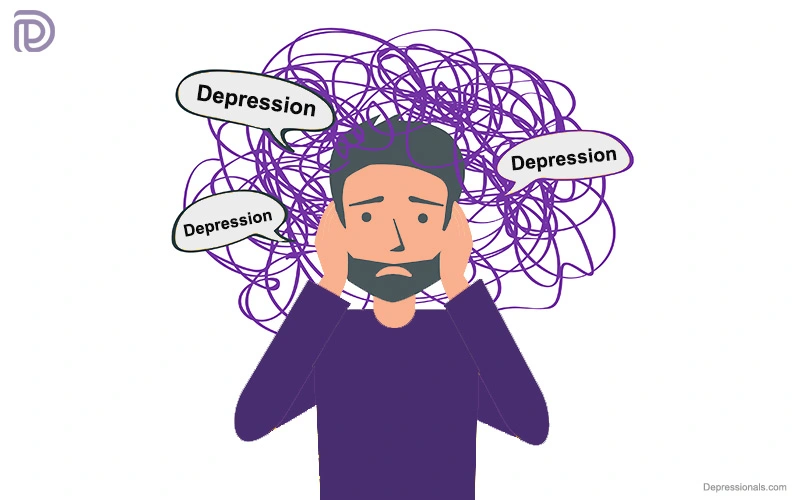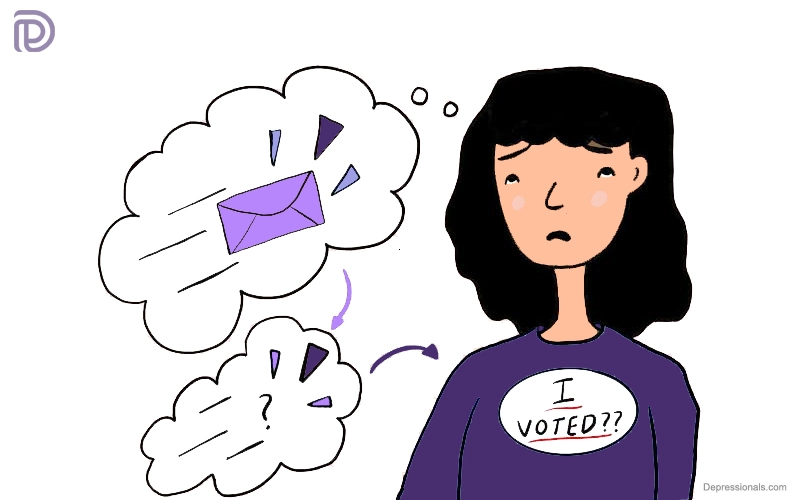What is teen depression?
Teen depression is not different from adult depression in terms of its mental and emotional consequences. But, teens may show symptoms differently from adults.
Due to peer pressure, changing hormone levels, and growing bodies, teens face different social and developmental challenges.
Suicide is one of the most serious outcomes of depression, as it is often accompanied by high levels of stress, anxiety and other emotional disorders. Depression can also negatively affect the following areas of a teen’s life:
- The personal life of an individual is their behavior, feelings, or thoughts when they are alone and disconnected
- School life
- Work life
- Social life
- Family life
The result may be social isolation and other problems.
It’s not possible to ‘cheer up’ from depression, or just snap out of it. If it’s not treated properly, it can have major consequences on a person’s life at every point.
Approximately 3.2 million American children and teens between the ages of 12 and 17 had at least one episode of major depression in 2017. American children aged 12- to 17 make up 13.3 percent of the population.
Depressive episodes were three times more likely to be reported by women than by men.
Read: Childhood Depression
What are the signs of depression in teens?
Parents may struggle to recognize the signs of depression in teens. Sometimes, depression is mistaken for teenage adjustments or feelings associated with puberty.
The problem with depression is that it goes beyond boredom or disinterest in school. Teenage depression symptoms can be characterized by the following, according to the American Academy of Child and Adolescent Psychiatry (AACAP):
- Sadness, irritability and tears
- Changes in appetite or weight
- Reduced interest in once enjoyable activities
- Boredom often occurs
- Loss of energy
- Inability to concentrate
- Feelings of guilt, helplessness or worthlessness
- Substance abuse
- Abnormal sleep patterns
- Thinking of or talking about suicide
- Disengagement from friends and activities after school
- Performing poorly in school
The symptoms of depression may not always be present. The appetite of teens can change frequently, especially during times of growth spurts and when they play sports.
You can help your teen if you look out for any changes in behavior as they get older.
Read: COVID-19 and Depression
Self-injurious behavior
The behavior of cutting oneself or burning oneself is also a warning sign. Adults may find these behaviors uncommon, but teens are more likely to display them.
Generally, these behaviors do not intend to end someone’s life, but they must be taken seriously. Teens tend to experience them briefly before developing better impulse control and other coping skills.
What causes teen depression?
Teen depression has no single cause. It is caused by a number of factors.
Brain differences
According to research, adolescents’ brains differ structurally from those of adults. There can also be hormonal changes and fluctuations in neurotransmitter levels in teens with depression.
A neurotransmitter is a chemical that controls how neurons communicate with each other in the brain. Their role in mood regulation and behavior is crucial.
Neurotransmitters like serotonin, dopamine, and norepinephrine are crucial to understanding depression.
These neurotransmitters may play a role in depression, as evidenced by available research.
Related: 4 Major Ways Depression Effects on Brain
Traumatic early life events
Children who lose a parent or who have been physically, emotionally, or sexually abused may develop depression.
There aren’t many coping mechanisms developed in children. Traumatic events can affect children for a long time.
Inherited traits
A biological component of depression has been found in research. Children can inherit the condition through their parents.
Children who have at least one parent with depression, especially one who has depression themselves, have a higher risk of developing it themselves.
Learned patterns of negative thinking
It is also possible for teens to develop depression if exposed regularly to pessimistic thinking, especially from their parents. The lack of positive examples may lead to teens developing depression.
Read: Loneliness and Depression
What are the risk factors for teen depression?
Teens are at risk of depression for several reasons, including:
- Death of a parent or divorce
- Teens who are LGBTQIA+ (lesbians, gays, bisexuals, transgenders, queers, intersex, asexual, and more) face difficulties with their sexual orientation
- Having difficulty adjusting socially
- Being socially and emotionally isolated
- Being surrounded by violence
- Being bullied
- Living with a chronic illness
People with difficulty adjusting socially or without a support system are particularly at risk of depression in teens.
An analysis of literature from 2018 found the same to be true for lesbians, gays, bisexuals, and queer youth.
Depression is a risk factor even for LGBTQIA+ teens who don’t struggle with conflicting feelings about their own sexuality. Because of external factors, such as a stigma from the external world or a lack of family acceptance, they commonly see themselves negatively.
Once a depression diagnosis is made, teens who are suffering from depression are highly treatable.
Read: Situational Depression
How are teen depression medications treated?
There is no single treatment that can help everyone who suffers from depression, just as depression has no single cause. It can be very difficult to find the right treatment for everyone. Finding one that works can take a lot of time.
A combination of depression medication and psychotherapy is usually used to treat depression in adolescents.
The symptoms of depression can be relieved by a broad range of medications.
AAP recommends SSRIs for people with moderate or severe depression who are between 10 and 21 years old.
Related: How to Deal with Teenage Depression
Selective serotonin reuptake inhibitors (SSRIs)
The most common form of antidepressant prescribed is an SSRI. These drugs are preferred due to their reduced side effects.
Neurotransmitters serotonin and dopamine are responsible for the effects of SSRIs. Serotonin is more effectively used in the brain when SSRIs prevent the body from absorbing it.
The FDA has reviewed and approved the following SSRIs:
- Citalopram (Celexa)
- Escitalopram (Lexapro)
- Fluoxetine (Prozac)
- Fluvoxamine (Luvox)
- Paroxetine (Paxil, Pexeva)
- Sertraline (Zoloft)
- Vilazodone (Viibryd)
The majority of SSRIs are only approved for adult use. FDA approval has been granted for fluoxetine for youth aged 8 and up with MDD. For those who are 12 years or older and suffer from MDD, Escitalopram has been approved by the FDA.
SSRIs commonly cause the following side effects:
- Problems in the bedroom
- Nausea
- Diarrhea
- Headaches
There should be continuous monitoring of all youth taking antidepressants for side effects. When your teen is having side effects that interfere with his or her daily life, talk with a doctor about them.
Related: How to Get Out of a Depressive Episode
What other treatments may help with teen depression?
Depressive symptoms may also be relieved by lifestyle changes.
Exercise
The brain produces mood-lifting chemicals when exercise is regularly performed. Bring up game ideas to promote physical activity, or have your teenager join a sport he or she is interested in.
Sleep
It is important for your teen to get enough sleep. Get them to bed on time each night and make sure they get enough sleep.
Diet
Processing fats and sugars require extra energy. This leaves you feeling sluggish. Choose meals rich in nutrients.
Caffeine
Moods can be temporarily boosted by caffeine. Your teen may feel tired or depressed if they regularly use the drug.
Alcohol
Self-medication with alcohol is common among people with depression. Drinking, especially for teens, can exacerbate the condition. Alcohol shouldn’t be consumed by those who suffer from depression.
Related: How to Help Someone with Depression
What are the benefits of psychotherapy for teens with depression?
Mental health professionals should be consulted by teens who have depression before or concurrently with starting medication therapy. CBT or IPT are recommended by the American Academy of Pediatrics.
Positive emotions and thoughts are replaced with CBT techniques.
During an IPT session, the aim is to enhance communication and problem-solving skills in order to build strong personal relationships. In some sessions, parents are invited to participate.
How does depression affect teens?
Many teens suffer from depression. There is a high suicide rate among teens who suffer from depression, so it should be taken seriously.
Early diagnosis of depression in teens is crucial. Make sure your teen sees a mental health specialist if he or she is showing signs of depression. A mental health specialist will prescribe medication and provide psychotherapy.
Read: Melancholic Depression
How can I help to cope with teen depression?
The difficulties associated with the teenage years are compounded by depression, which can have profound effects on a person’s life.
It is not always easy to diagnose teenage depression. Fortunately, teens can be treated with the appropriate therapies.
When your teen suffers from depression, you should consult a mental health professional. An individual treatment plan will be designed for your teen. The plan must also be followed by your teen.
You can help your teen cope with depression by:
- Eating well and exercising
- Be realistic in your expectations
- Maintain a simple lifestyle
- Ask for help
- Develop healthy relationships with other people
- Journal about their feelings and thoughts
Contact: Mental Help Resources
The bottom line on treatment for teens
The AAP recommends that a clinician reassess treatment and diagnosis after 6 to 8 weeks if symptoms do not improve. A mental health consultation may also be recommended.
You can connect your teen with others who have depression through support groups.






This particular is usually apparently essential and moreover outstanding truth along with for sure fair-minded and moreover admittedly useful My business is looking to find in advance designed for this specific useful stuffs…